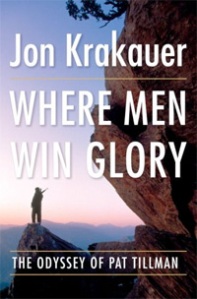 “Americans liked Ichiro because, for one thing, he was a throwback to another time. He had reintroduced them to a style of offense that many MLB fans, accustomed to andro-induced sluggers and tape-measure home runs, had forgotten – an attack based on the single, the hit and run, and intrepid baserunning that had once defined the game.” – Robert Whiting, The Meaning of Ichiro
“Americans liked Ichiro because, for one thing, he was a throwback to another time. He had reintroduced them to a style of offense that many MLB fans, accustomed to andro-induced sluggers and tape-measure home runs, had forgotten – an attack based on the single, the hit and run, and intrepid baserunning that had once defined the game.” – Robert Whiting, The Meaning of Ichiro
Robert Whiting’s book, The Meaning of Ichiro: The New Wave From Japan and the Transformation of Our National Pastime is a fascinating look at Japanese baseball – its history, its teams, its roots in martial arts, the tight grip that nationalism and corporate culture hold on players (and coaches), and how the pursuits of physical discipline, athletic perfection, and the “submergence of ego” destroy countless young players, as well as produce stars like Ichiro. You’ll read about Japanese managers who push their players in practice until they bleed, vomit, and collapse. You’ll read about how umpires in Japan are intimidated to change calls (offering insight into why the American rules protecting umps also protect the integrity of the game itself), as well as the details of a tortuous practice routine called “the 1,000 Fungo Drill.”
For those who enjoy reading stories about the clashes between players, agents and the front office, Ichiro has them in spades. Whiting’s book captures the inside negotiations, loopholes, crafty maneuvering, and bitter fights that finally cleared the way for Japanese players like Hideo Nomo and Ichiro to try their hands in America, (where before they were all but bound to Japan for life).
It’s also got stories about Americans in Japan, too. Pick up the book just to read the outrageous chapter in which former Mets manager, Bobby Valentine, leads one of the worst teams in Japan to second place and then gets sacked for it.
The book can get kind of dense, and it only covers the history of Japanese players in America up until 2003 (so you won’t find a mention of Cubs favorite, Kosuke Fukodome), but Whiting’s book is a portrait of how one sport and its fans can represent the nuances, peculiarities, and damning, as well as beautiful, aspects to a nation’s character. If you’re a baseball fan (or interested in Japanese culture) and you want to learn about Japan’s role in transforming MLB baseball into an international pastime, this one covers a lot of bases. (Jarrett D., The Loft)
[youtube=http://www.youtube.com/watch?v=JN9tsZP65l0&hl=en&fs=1&]
NPR book reviewer Maggie Stiefvater recently noted that 55% of YA (Young Adult ) fiction is read by adults. She goes on to recommend five YA titles “you’ll never outgrow.” Her favorite among them, and ours, too, is Code Name Verity by Elizabeth Wein. As Stiefvater writes, “[T]wo girls join the war effort in World War II Britain. During a mission, they’re shot down over France and a lengthy interrogation begins. What sounds like a deeply unpleasant story is actually a frequently wry and astonishingly real portrayal of two best friends. It’s hard, but not harrowing. And most importantly, it has stuck with me ever since I picked it up. It is one thing to love a novel. It’s another for that love to endure for months. It’s the holy grail for this particular reader, and that is why it is my No. 1 read of 2012. “





 A departure from his usual subject matter, Krakauer’s latest chronicles the events that led to Pat Tillman’s tragic death in remote Afghanistan. While Tillman’s death was initially blamed on an enemy ambush, weeks later the Army released information that suggested he was instead the victim of fratricide – killed by his own men.
A departure from his usual subject matter, Krakauer’s latest chronicles the events that led to Pat Tillman’s tragic death in remote Afghanistan. While Tillman’s death was initially blamed on an enemy ambush, weeks later the Army released information that suggested he was instead the victim of fratricide – killed by his own men. 